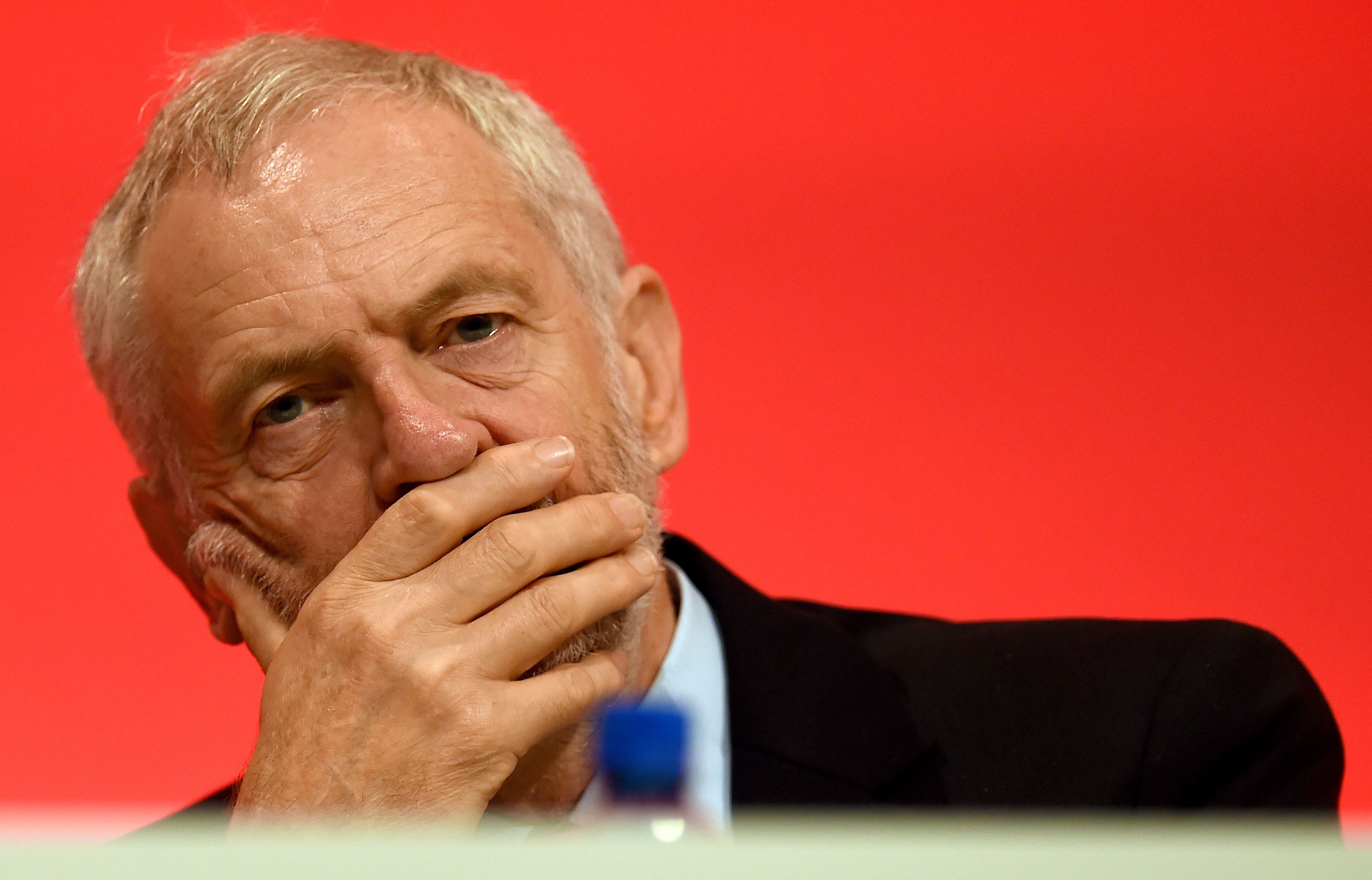
Shortly after British voters defied the leaders of both major political parties by deciding in June to leave the European Union, it was tempting to write the political obituary of Labour Party leader Jeremy Corbyn. His party's polling was at a three-decade low. Most of his shadow cabinet resigned, furious that he was a no-show during the Brexit campaign. Labour members of Parliament held a confidence vote and Corbyn lost, 172 to 40.
But announcements of his death turned out to be greatly exaggerated. The only polls that mattered were those of the Labour Party rank-and-file and it, together with the unions that still help shape party policy, was not about to desert the leader. Three months later, Corbyn is firmly in charge.
The UK now has an opposition leader who, by most counts, has zero chance of winning a general election. That may not even be his goal.
At a leadership election on Saturday, Labour's half-million voting members gave Corbyn nearly 62 per cent of the vote, an even greater mandate than he won a year ago when he became Labour leader. Many of the MPs who deserted him in June are willing to forgive and forget.
Some of Corbyn's die-hard supporters fantasse that he's a serious contender for prime minister. Others don't care. They see the immediate mission as ensuring the ideological purity of a party that had, for a time, been hijacked by Tony Blair and his centrist politics. For them, the socialist movement is what counts; winning office requires too much compromise.
While he doesn't say so, there is plenty to suggest that Corbyn himself falls into the second camp. Unlike most politicians gunning for votes, his positions are unaffected by focus groups. He has praised the late Venezuelan president Hugo Chavez and supported the re-nationalisation of some British industries. He wants unions given more power and taxes increased. He'd see the UK out of NATO and would renounce its nuclear deterrent. He'd also like to abolish the monarchy, but in his one act of deference to the popular will, he says that "can wait."
These aren't mainstream views, even in a country that loves its National Health Service. In August, the Social Market Foundation and Opinium asked voters to place themselves on a left-right continuum and also to do the same for a range of politicians. When asked about their own political position, 45 per cent of voters put themselves in the center, with 25 per cent on the left. The results seem to validate Prime Minister Theresa May's decision to seek votes outside her own Conservative Party.
Instead of hard left-right categories, British opinion tends to divide into various tribes that coalesce around different issues, say the authors. There are two large opinion tribes. One has a nativist bent, is anti-immigrant and broadly isolationist. The other is less political, largely in favour of lower immigration and lower taxes. There is nothing to suggest that a hard-left political platform would gain traction.
A poll by YouGov showed that May leads Corbyn by large margins in every voter group and region, except in Scotland (a traditional Labour stronghold) and among 18- to 24-year-old voters. Among Labour's traditional support base of working class voters, May leads by 44 per cent to 27 per cent.
To some on the left, this isn't just disastrous for Corbyn's leadership hopes; it could spell the end of Labour. Writing in The Spectator, the journalist Nick Cohen says of Corbyn's victory speech:
English Conservatives and Scottish Nationalists do not wake at 3. a.m., drenched in sweat, worrying about how they can defeat him. Like a drunk who punches his own face, Corbyn beats himself, leaving Labour's rivals free to do what they will. For English leftists, however, trying to salvage what they can from the wreck of their party, the apparently simple question of how to take on the far left appears impossible to answer.
Labour's weakness isn't just an issue for disaffected Labour voters. Corbyn's feeble support for the "Remain" campaign (Corbyn is a euroskeptic who voted to leave the European Economic Community in a 1975 referendum) was arguably a key factor that tilted the scales for leaving. On education, health care, infrastructure, and Brexit, voters who disagree with the government line may find themselves without a viable alternative, which undermines faith in the political process, as the Economist argued in a recent cover story. Support in Scotland for remaining firmly tethered to the UK may be undermined with Labour in tatters too.
In his first interview since leaving government, former Chancellor George Osborne told the Financial Times that he took no pleasure in Labour's travails. His Conservative Party may be celebrating Labour's weakness now, he says, "but it's actually a total disservice to democracy."
Democracies can, of course, survive periods of one-party dominance. In the UK, policy will still get a vetting in the House of Lords, and the Conservatives' own legislators can be as boisterous as any opposition. May, who has promised not to preside over government for the "privileged few," seems to take nothing for granted, perhaps recalling the seemingly unassailable position that John Major held after the 1992 elections. Labour remains a formidable, well-organised brand. And Corbyn's appeal among young people reflects frustration with the Conservatives' failure to tackle issues of importance to them, such as access to affordable housing. For now, though, Corbyn isn't giving the Conservatives much to worry about. - Bloomberg View